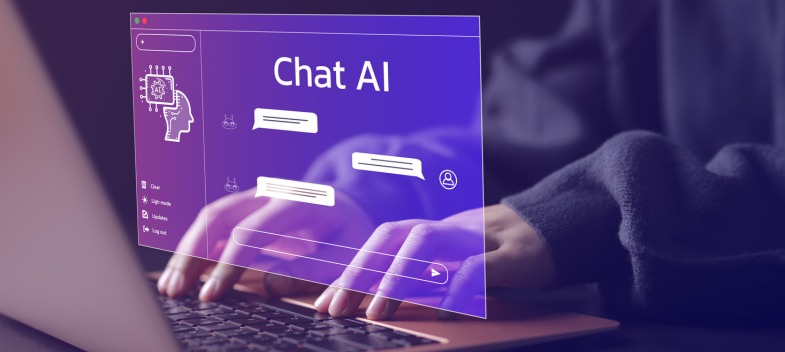By Paola Iuspa-Abbott, president of Top of Mind Public Relations
The days of building a legal reputation through glossy brochures or networking over cocktails are over. In today’s legal marketplace, your authority is judged first – and often entirely – by search engines and AI bots.
When someone types into Google or asks ChatGPT, “Who’s the best attorney for cryptocurrency regulation?” or “Which litigator has a strong track record in complex commercial cases?” – the names that surface are there for one reason: algorithmic visibility.
If Google’s crawlers, OpenAI’s indexers, or other search bots aren’t consistently encountering your name in credible media, authoritative blogs, and legal podcasts, your expertise may never reach your intended audience, no matter how good you are at practicing law.
Authority Is Scored Before It’s Read
Google’s E-E-A-T framework (Experience, Expertise, Authoritativeness, and Trustworthiness) is at the heart of what AI and search bots prioritize. And earned media coverage is one of the most powerful signals for all four pillars.
Here’s why:
- Editorial validation builds trust
Being quoted in Bloomberg Law or publishing an op-ed in The Wall Street Journal gives third-party credibility that both humans and algorithms recognize. Bots read this as authority. - High-quality backlinks = higher search rankings
When reputable outlets link to your bio, website, or LinkedIn profile, search engines follow those links and assign more weight to your content. - Fresh content signals relevance
Bots prioritize recency. That big case you won in 2013? Great for bios — not for search rankings. Frequent media mentions confirm you’re active, relevant, and in-demand now.
The Compounding Power of Thought Leadership
One media hit does more than boost your ego … it drives exponential visibility across both platforms and people.
- Journalists keep calling
Reporters remember reliable sources. Every quote you give strengthens your position as a go-to expert in legal newsrooms. - Bots connect your name to key topics
A quote on ESG rules today helps you show up in AI results tomorrow when someone asks about SEC enforcement. - Speaking gigs follow exposure
Conference organizers and podcast producers search just like potential clients. Visible experts get the invites and the SEO value of being listed on event sites and show notes.
5 Media-Smart Moves Lawyers Should Make Now
- Niche Down Before You Speak Up
Pick a clear focus: crypto litigation, ADA website compliance, or tax credits for clean energy. The sharper your expertise, the easier it is for both journalists and bots to tag you correctly. - Create a Rapid-Response Protocol
When major rulings drop, be ready with a quotable 150-word comment. Speed + insight = headlines. Early expert input often ranks highest. - Newsjack on LinkedIn and X
Break legal developments down in plain English within hours of breaking news. Use hashtags, tag journalists, and amplify your visibility. These posts often train AI systems and boost discoverability. - Offer Original Data
Share anonymized stats, trends, or survey results that give journalists a fresh angle. Algorithms reward unique data with better placement in results. - Keep a Media-Ready Digital Hub
Your bio page should include:
- A short, clear summary of your expertise
- High-res headshots
- Speaking clips or media quotes
- Press mentions and links
Make it easy for people and bots to verify your credibility.
Objections We Hear – and How to Move Past Them
“I don’t have time.”
Repurpose what you already do – client alerts, legal memos, CLE content – into media-friendly insights. A single 15-minute interview can generate more long-term ROI than hours of traditional marketing.
“I’m afraid of being misquoted.”
Prepare your talking points, record the call, and stick to clear, factual messaging. Reputable outlets will correct errors. The upside outweighs the risk.
“I worry about saying the wrong thing in front of regulators.”
That’s exactly why you should speak up clearly, responsibly, and on the record. Smart commentary shows you understand the landscape and operate with integrity.
Bottom Line: Media Relations Is the New SEO
In a marketplace where bots shape visibility and trust, earned media isn’t a vanity project … it’s fuel for SEO, AI, and opportunity.
Smart lawyers who invest in strategic media relations build a flywheel effect:
- Media mentions increase search visibility
- Higher rankings attract more coverage
- More coverage cements authority
Meanwhile, those who stay silent risk becoming invisible, not because they lack skill, but because the algorithms never found them.
About the Author
Paola Iuspa-Abbott is the founder and president of Top of Mind Public Relations, a national PR agency specializing in strategic media relations, thought leadership, and digital visibility. A former journalist with more than a decade of experience in major newsrooms, she brings a newsroom mindset to public relations, helping clients earn meaningful press coverage and build authority across both traditional and digital platforms.
Since launching Top of Mind PR in 2015, Paola has led campaigns for law firms, real estate developers, nonprofits, and national brands – with a focus on securing high-impact media placements, optimizing content for search engines, and staying ahead of how AI and algorithms shape visibility today.





